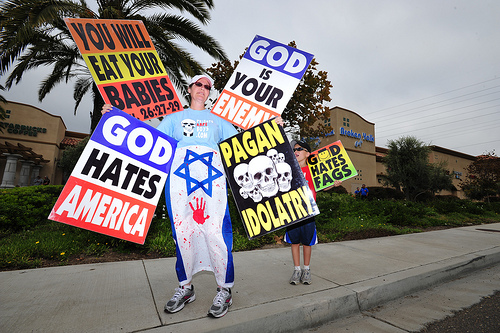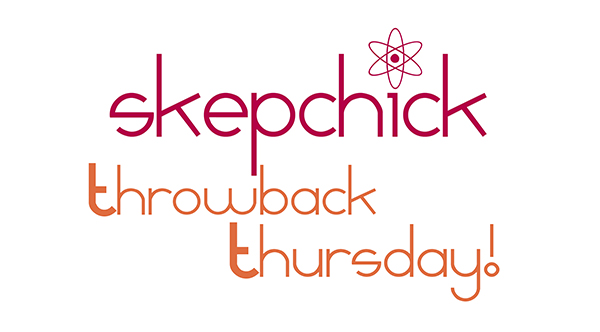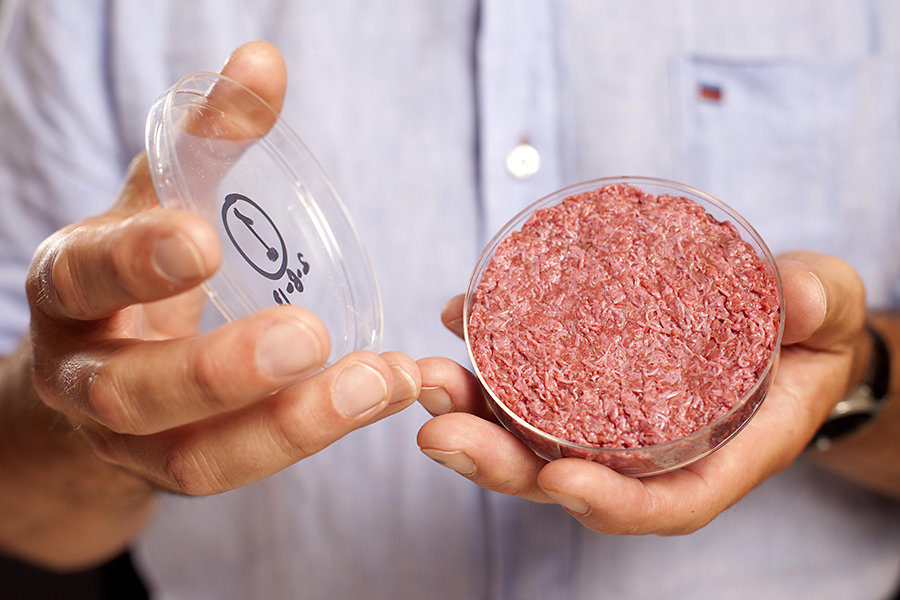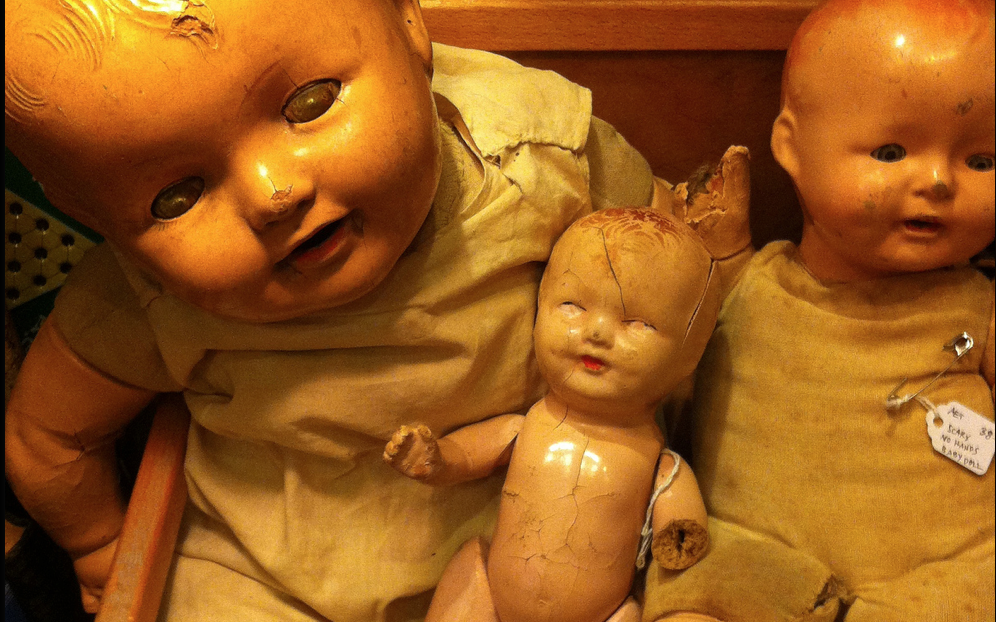AI: So… death…

The last few days have been somber here in the Mofo house. My son, Moose, is 5, making him just about the same age as most of the victims at Sandy Hook. This shooting is affecting me in ways I couldn’t even imagine. I mean, it’s rarely not sad when a kid dies, but when it’s not something that immediately affects me, I pause, think about how sad it is, then move on.
Sandy Hook has me still pausing. Or wishing I could. Wishing I could pause the moments where my kids are laughing… or when I’m hugging them… or just always. Just pause everything. But I can’t. And because I can’t, I’ve spent a whole lot of time crying. Life is awful sometimes. It doesn’t make sense. And there’s nothing we can do or say or think to make sense of it at all.
In the end, we get through it and move on.
I think sometimes the hardest moment in loss is the moment you realize that moving on is something that will happen. Like when my sister died, I didn’t want to go to sleep. I didn’t want time to pass. I didn’t want distance between the last time I talked to her or saw her or the last time she was a part of this world. I wanted to still feel near to that… and I never wanted to have to move on. The moving on happened, and we expect that to be painful… and it was… exactly as much as it could be. But the realization that moving on was inevitable? I didn’t realize how painful that would be. Facing myself and explaining to myself that there was going to be a point where I was going to be okay living a life without my sister. That was hard.
And each loss is different. Each grief is different. Sometimes, you face the realization that you’ll be moving on from this person’s life and passing long before they’re even dead. Sometimes years before they’re dead. Or maybe you just move on without thinking about it… and that might or might not be okay with you.
But man…. death is hard. The worst, really. Especially since there’s no right or wrong way to cope with it at all… while people around you sort of expect there to be.
Anyway, I know this is an awful downer just days before Christmas. But that’s where we’re at. But I’ll end it with this little anecdote about death and gift giving:
My grandmother died in her 70s from a not-too-drawn-out battle with cancer. After she died, my dad and his brothers used part of the money from her estate to organize a family trip to Ireland. It was my husband and me and my cousins and aunts and uncles. We all went together. We visited the town where my grandmother’s father was born. We still have family there, and they still own the tiny house he grew up in. The house was maybe half the size of my 2 bedroom apartment, and 14 people lived there. We “toured” the house and the farm and the town. And I spent a week in Ireland getting to know my family better. It was a pretty amazing experience and brought me closer to my cousins, and made us a tighter family. I like to think that was a pretty great final gift from my grandmother. And that she’d be pleased to know she helped make that happen.
How well or not well have you dealt with losses in your life? Do you think it’s harder to deal with loss without religion? Do you find yourself getting angry or irritated with religious platitudes over death? What has helped you move on? Do you do anything to honor the memories of the ones you’ve lost? Are holidays harder for you than the rest of the year? Would you like me to post a happier question next week?
The Afternoon Inquisition (or AI) is a question posed to you, the Skepchick community. Look for it to appear Sundays, Tuesdays and Thursdays at 3pm ET.





Speaking and hearing the religious platitudes after my beloved grandmother’s death over 20 years ago was meaningless, even though I considered myself to be religious back then (it’s one of the things that make me think I have never truly been religious actually). But rituals like funerals and having friends and family congregate did mean something.
It is so awful to think of children dying, or of young children losing their parents.
Thanks for sharing your story Elyse. It is difficult to air such intensely personal feelings in public.
When my much loved father in law died, my wife suggested that the whole family adopted an old tradition, which was that we all joined in to fill the grave ourselves.
I can’t tell you how much that helped to ease the sorrow of that exquisitely painful moment. We worked shoulder to shoulder and thereby bonded with family members we may not have seen for some time. We laughed at our own clumsiness. We placed candles on the grave and retired to a huge wake to celebrate a life well lived.
To lose a child, though, is pain of a different order and I can hardly imagine what it must be like to live through – though I have seen it close up – too often.
One of our friends lost their 21 year old son in the Bali bombing. Serious, serious impact and years to recover, if at all.
Every loss is different. Sometimes I sleep for a week, sometimes can’t sleep at all, sometimes I’m ravenous, sometimes nauseous.
As for the platitudes, it really depends on the attitude behind it. If someone is genuinely offering comfort the only way they know how, generally I say thank you and try not to dwell on it. If, as has often been the case, it’s someone who seems to be thinking, “AHA! Got you now! Your grief makes you vulnerable and I’ll just pour this god stuff in your ear now” Then … I say thank you and try not to dwell on it, but secretly dislike them. Until such time as they trigger my temper on some other issue and then I rant, rave, and generally burn all bridges.
I’m actually surprised how well I’ve delt with losses in my life. Of course, most of my losses are expected, dealing with elderly relatives. Don’t know if it would be different with relatives closer to my age.
I find it somewhat easier to deal with deal without religion. I try to look at it from a natural, or even cosmic, viewpoint in that we’re taking our part in the life cycle.
From that respect, I do get irritated over the religious platitudes. I find it makes it more difficult to cope with my own means over the loss of someone.
It’s the cosmic perspective that I think helps me move on.
For holidays, it’s mostly the religiously themed ones.
Easter holds no meaning for me. This Christmas has been especially difficult.
I say you go and post any question that comes to your mind, regardless if it’s happy or not. Any issue, good or not, ought to come out.
And thank you for posting THESE question.
In 1968 I was eleven years old when my mother died in a plane crash. I believe the feeling I had then was being numb, and confused.
It did not help that her family really (and I mean really!) did not like my dad. They weren’t so keen that he was in the Army and was deployed overseas. They thought he could not take care of me and my siblings. So he married one of my mother’s childhood friends within six months (plus she had a daughter). I had a very rocky puberty and was the step-daughter from hell. But I got over it (did you know that there are psychiatrists who deal with that kind of stuff?).
What does happen is I think of an aspect of my mother and start crying. I’m a math geek and it was my mother who explained different number bases to me when I was in fifth grade (her father was an accountant, and it turns out my dad simply does not understand things like logarithms, he majored in linguistics). My mother loved to read, and my Sunday afternoons were spent lying on the big king size bed reading the comics while she read a book. I cried when my daughter was part of a winning reading team in fourth and fifth grade (and she is now majoring in linguistics). My mother was a visual artist*, and I cry when I see the artistic talent that my kids have (it must have skipped a generation, because I am hopeless).
I am crying now.
And I do know that I would be devastated if one of my three kids died. My oldest had open heart surgery this year and I literally freaked when he had the typical shivers that happen when a person comes out of anesthesia. They reminded me of the seizures he had as an infant.
I know if anything happened to one of them it would be like someone ripping a piece out of my emotional heart.
* An example of her talent and her personality: when my parents made hard boiled eggs for us to have as snacks, she would pencil on them some of the most comical angry faces… because they were “hard boiled.”
I think you meant “Sandy Hook,” not “Sandy Hill.”
Yes, thank you. I don’t know what I was thinking.
Elyse,
My father past away while I was still in High school. Both of my Grandfather and grandmother on my mothers side have passed away, as well as on my father’s side. It was really hard dealing with it each time. I wish I could see them again. I wasn’t really even able to say goodbye to any of them. For awhile after my dad had passed away, my mom would actually forget that he was no longer on this Earth, than she would remember and get sad again. Its never easy to loose someone you care about, especially family.
My mother died suddenly when I was 13. Technically she died of a stroke, but in my mind it will always be the alcohol that killed her. Of course her death came as a terrible shock, but to me the most difficult thing to deal with later in life was probably the last few years of her life, when I would come home every day to find her drinking in the kitchen or unconscious on the couch. The fact that she died made it even more difficult to cope with the anger that I still felt toward this person who I also loved (You are not supposed to think ill of the dead, right…).
To make the whole thing worse, my mother was an atheist, and while she was still alive she made my father promise that if she died before him, she would not get a religious funeral. However, when she died her mother insisted on a Christian sermon, complete with psalms and Bible verses, and threatened to boycott the funeral unless she had it her way. As a compromise we settled on a funeral in two parts: The first part was a beautiful commemoration of the person my mother had actually been. The second part was a grotesque parody of a funeral that we had to put up with to keep the peace in the family *. I can think of no greater insult to a person’s memory than turning his/her funeral into a celebration of everything (s)he hated.
_____________________________________________________
* My parents were now divorced. If I had been an adult when it happened, I would have told my grandparents where to stick it in no uncertain terms.
My wife of 25+ years died this past weekend after a year-long struggle with terminal bile duct cancer.
I am coping with it in part by reading blogs. Doesn’t help a lot, but it is a distraction.
Up until a few years ago I would have said I was a stone-cold atheist. And I may still be; I’m not certain. But for the past few years — and maybe for longer than that — many strange things have happened to me, to us. Coincidences, probably. But sometimes I wonder. My certainty is no longer absolute.
And so I find myself hoping — probably completely unreasonably — that there is something more to it all, something beyond our ken, and that she is still there, somewhere. Not in the comic-book Heaven of the monotheistic religions, which she would have dismissed as well, but in some — I don’t know what — some sort of existence that we don’t understand and maybe never will.
Perhaps such thoughts are inevitable, as the living attempt to reconcile with the dead. But maybe they are a glimpse into a larger truth. Who knows?
That’s about all I think I wanted to say on that.
That’s harsh, mate. My condolences to you and your family.
I’m so sorry for your loss. There is no wrong way to think or feel about anything right now. All the best.
I’m currently coping with a loss and have been thinking about this issue a lot. As a social scientist, I am coping by thinking about the impact everyone we encounter has on us as a person and how that impacts us after that point. Unfortunately, our social supports for loss in our highly religious society often assume a more spiritual and religious kind of interpretation of loss. It can be unbelievably frustrating to feel like the world is forcing a religious perspective on your grief. I continue to accept the generally kind intention behind religious sentiments rather than get into a philosophical conversation that most people don’t want to have.
Last August I had a miscarriage and it was the most devastating moment of my life. I remember being so excited when I found out that I was pregnant, telling all my friends, and then heart break when no heartbeat was found on the ultrasound. The event was made even more difficult because my sister in law was also pregnant and she was due only four days after me. I felt resentment towards her during her pregnancy as well as guilt for feeling that resentment. I fell into depression shortly after the news and no one was any help. My husband didn’t understand why it hurt so much because the fetus only made it to nine weeks. My friends and family didn’t understand why it was taking me so long to recover and gave me a “get over it” kind of vibe. My mom kept saying tons of unhelpful things such as “at least you can get pregnant” or “your so strong you’ll get through it”. She is extremely pro life (I don’t share this belief) yet didn’t act at all like I had lost a child. I guess to her, it’s only a baby if the mother decides to abort. Family and friends who were initially excited about my pregnancy suddenly wanted to avoid me. I got crap for not wanting to attend a family party one month after my D&C and then got crap when I did attend but wasn’t in the best mood, especially because there was tons of baby talk. I did get pregnant again in December, but that pregnancy was nothing but stressful. I was afraid to lose that pregnancy as well even long after the 24 week mark. Unfortunantly, I googled absolutely everything and got caught up in woo that I’m still not completely over. Even after I had my son, I’m still afraid of losing him. In fact, this fear pretty much takes over my life and I feel like I’m missing out on this time with him. I’m constantly washing my hands, obsessed with the food I eat, and I nearly have a heart attack when ever I see his hands touch the floor. I honestly do not think I could go on if I lost him. I feel like I need professional help but I don’t know if it will be possible for me to get it. Looking back, I probably should have waited to get pregnant again. And I wish that someone would have talked to me about the miscarriage. As much as I love my son, I do still get emotional over the previous pregnancy.
There is no shame in seeking professional help. It helped me a great deal to get me through puberty after losing my mother and gaining a step-mother and sister in less than a year. Even at just nine weeks you had a bit of your figurative heart ripped out, and what remains is real pain. Even just talking about someone who is trained to listen can help.
Good luck. And yes, I still cry and that is okay.
I have worked in the HIV field for the past 22 years. Quite a lot of my friends are dead. Those that are not dead, including my husband, are infected with the virus. I have done a lot of thinking about death.
When it happens to someone who is young and has recently been healthy, it is a shock to the system of those who are left alive. We aren’t sure what to do with our pain all the time and there is no comfort in the long life they lived or the experiences they had. When it happens week after week, month after month such as in the 80’s and 90’s, it becomes deadening for some; we also tend to have a terrible sense of gallows humor that is absolutely not appreciated by those less in touch with their mortality.
Religion was, obviously, no comfort at the time. Most religious sects were not willing to acknowledge the reason for the death, priests were not willing to give last rites, funeral homes didn’t want to be “contaminated”. It was miserable and painful. We made our own rituals. We celebrated lives in our own way because the old rituals weren’t available for so many of us.
Not sure what my point is, only that I remember every single person I lost. I have all of their memorial service cards, obits, etc. I don’t read them often and I don’t dwell on their losses, but I remember them all and I miss them.
When my mother died (at age 87) about 6 years ago, I missed her and still do, but I wasn’t overwhelmed with grief. I considered that she lived a full life, died in her own home and bed without pain (she just didn’t wake up one morning), and lived at least the last 30 or so years on her own terms. She was also an atheist as am I.
I don’t know that pretending to believe the unbelievable is really that much help. I remember reading about a devout Catholic Bishop, who on hearing from his close friend that the friend was going to die of an incurable disease soon, said “Congratulations, my friend, I will be joining you in Heaven in good time.” Now that, to me is true (if deluded) belief. I don’t see many self-proclaimed Christians reacting that way, so I tend to agree with Penn Jillette’s “beyond atheism” belief system which asserts that not only is there no God, but almost nobody really believes that there is one.